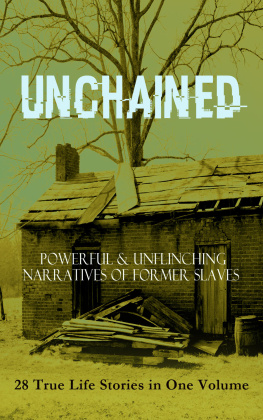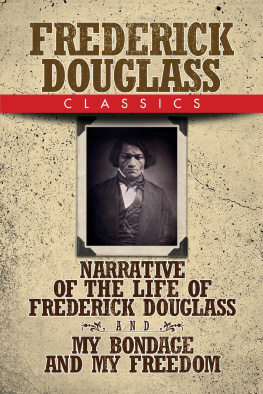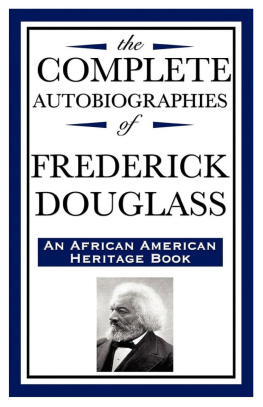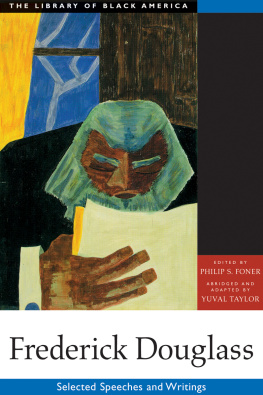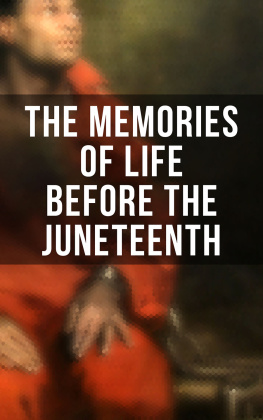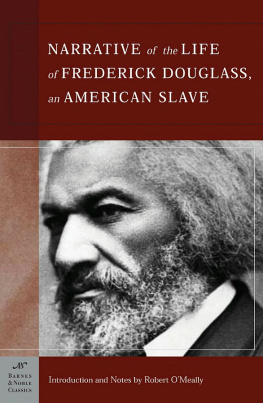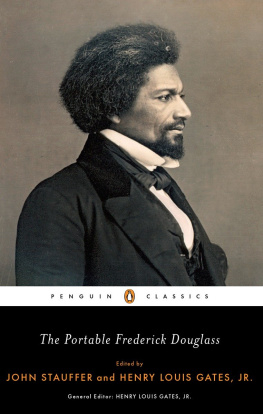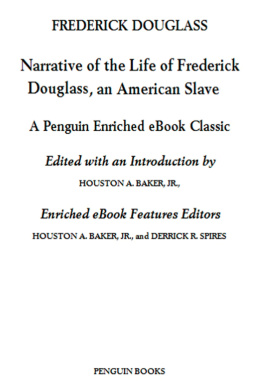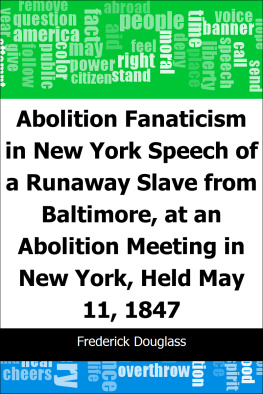FREDERICK DOUGLASS
By Paul Laurence Dunbar
Sister Projects.sister projects: Wikidata item.
A hush is over all the teeming lists,
And there is pause, a breath-space in the strife;
A spirit brave has passed beyond the mists
And vapors that obscure the sun of life.
And Ethiopia, with bosom torn,
Laments the passing of her noblest born.
She weeps for him a mother's burning tears--
She loved him with a mother's deepest love.
He was her champion thro' direful years,
And held her weal all other ends above.
When Bondage held her bleeding in the dust,
He raised her up and whispered, "Hope and Trust."
For her his voice, a fearless clarion, rung
That broke in warning on the ears of men;
For her the strong bow of his power he strung,
And sent his arrows to the very den
Where grim Oppression held his bloody place
And gloated o'er the mis'ries of a race.
And he was no soft-tongued apologist;
He spoke straightforward, fearlessly uncowed;
The sunlight of his truth dispelled the mist,
And set in bold relief each dark hued cloud;
To sin and crime he gave their proper hue,
And hurled at evil what was evil's due.
Through good and ill report he cleaved his way.
Right onward, with his face set toward the heights,
Nor feared to face the foeman's dread array,--
The lash of scorn, the sting of petty spites.
He dared the lightning in the lightning's track,
And answered thunder with his thunder back.
When men maligned him, and their torrent wrath
In furious imprecations o'er him broke,
He kept his counsel as he kept his path;
'Twas for his race, not for himself he spoke.
He knew the import of his Master's call,
And felt himself too mighty to be small.
No miser in the good he held was he,--
His kindness followed his horizon's rim.
His heart, his talents, and his hands were free
To all who truly needed aught of him.
Where poverty and ignorance were rife,
He gave his bounty as he gave his life.
The place and cause that first aroused his might
Still proved its power until his latest day.
In Freedom's lists and for the aid of Right
Still in the foremost rank he waged the fray;
Wrong lived; his occupation was not gone.
He died in action with his armor on!
We weep for him, but we have touched his hand,
And felt the magic of his presence nigh,
The current that he sent throughout the land,
The kindling spirit of his battle-cry.
O'er all that holds us we shall triumph yet,
And place our banner where his hopes were set!
Oh, Douglass, thou hast passed beyond the shore,
But still thy voice is ringing o'er the gale!
Thou'st taught thy race how high her hopes may soar,
And bade her seek the heights, nor faint, nor fail.
She will not fail, she heeds thy stirring cry,
She knows thy guardian spirit will be nigh,
And, rising from beneath the chast'ning rod,
She stretches out her bleeding hands to God!
FREDERICK DOUGLASS
By Harriet Beecher Stowe
It is the pride and the boast of truly republican institutions that they give to every human being an opportunity of thus demonstrating what is in him. If a man is a man, no matter in what rank of society he is born, no matter how tied down and weighted by poverty and all its attendant disadvantages, there is nothing in our American institutions to prevent his rising to the very highest offices in the gift of the country. So, though a man like Charles Sumner, coming of an old Boston family, with every advantage of Boston schools and of Cambridge college, becomes distinguished through the country, yet side by side with him we see Abraham Lincoln, the rail splitter, Henry Wilson, from the shoemaker's bench, and Chase, from a New Hampshire farm. But there have been in our country some three or four million of human beings who were born to a depth of poverty below what Henry Wilson or Abraham Lincoln ever dreamed of. Wilson and Lincoln, to begin with, owned nothing but their bare hands, but there have been in this country four or five million men and women who did not own even their bare hands. Wilson and Lincoln, and other brave men like them, owned their own souls and willsthey were free to say, "Thus and thus I will doI will be educated, I will be intelligent, I will be Christian, I will by honest industry amass property to serve me in my upward aims." But there were four million men and women in America who were decreed by the laws of this country not to own even their own souls. The law said of themThey shall be taken and held as chattels personal to all intents and purposes. This hapless class of human beings might be sold for debt, might be mortgaged for real estate, nay, the unborn babe might be pledged or mortgaged for the debts of a master. There were among these unfortunate millions, in the eye of the law, neither husbands nor wives, nor fathers nor mothers; they were only chattels personal. They could no more contract a legal marriage than a bedstead can marry a cooking-stove, or a plough be wedded to a spinning wheel. They were week after week advertised in public prints to be sold in company with horses, cows, pigs, hens, and other stock of a plantation.
They were forbidden to learn to read. The slave laws imposed the same penalty on the man who should teach a slave to read as on the man who wilfully put out his eyes. They had no legal right to be Christians, or enter the kingdom of heaven, because the law regarded them simply as personal property, subject to the caprice of an owner, and when the owner did not choose to have his property be a Christian, he could shut him out from the light of the gospel as easily as one can close a win dow shutter.
Now if we think it a great thing that Wilson and Lincoln raised themselves from a state of comparatively early disadvantage to high places in the land, what shall we think of one who started from this immeasureable gulf below them?
Frederick Douglass had as far to climb to get to the spot where the poorest free white boy is born, as that white boy has to climb to be president of the nation, and take rank with kings and judges o f the earth.


